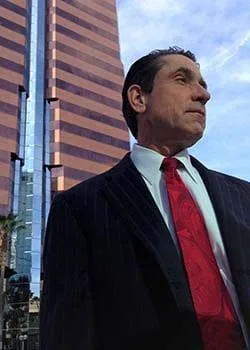A search warrant is a court order, normally prepared by a law enforcement officer, that upon being reviewed and endorsed by a magistrate (usually a judge) directs the officer to search, usually a residence, for personal property. Search warrants can also direct the search of a container, cellular phone, computer, or even a bodily cavity.
Search warrants can also order the production of documents, business records, electronic data, blood or other real evidence. A search warrant can be issued to use a tracking device to track a target’s movements for up to 30 days.
The following is a brief analysis of search warrant law by certified criminal law specialist, Long Beach criminal lawyer Matthew Kaestner, as it applies in California.
To comply with the terms of the Fourth Amendment to the United States Constitution, a search warrant must describe with particularity “the place to be searched and the persons or things to be seized.” In California, in order to obtain a criminal search warrant, a peace officer must present an “affidavit” to a magistrate swearing that “probable cause” exists to believe that evidence of a crime is currently in a specific place. [Calif. Penal Code sec. 1525]
“Probable cause” has been described in different ways by different courts since the phrase was first used in English common law in the 1600s as a legal standard used to protect landowners from searches from government officials. The legal standard was transferred to the American colonies in books such as Hale's Pleas of the Crown (1800) that stated that search warrants were "not to be granted" unless "the party complaining hath probable cause to suspect they are in such a house or place, and do show his reasons of such suspicion.”
The phrase “probable cause” was incorporated into the United States Constitution in the Fourth Amendment by the founders. Although the Constitution does not define the term, the United States Supreme Court has defined it as being "where the facts and circumstances within the officers' knowledge, and of which they have reasonably trustworthy information, are sufficient in themselves to warrant a belief by a man of reasonable caution that a crime is being committed." [Brinegar v. United States (1949)]
The United States Supreme Court in Illinois v. Gates (1983) adopted the “totality-of- the- circumstances” approach. The Gates Court stated that “In dealing with probable cause, . . . as the very name implies, we deal with probabilities. These are not technical; they are the factual and practical considerations of everyday life on which reasonable and prudent men, not legal technicians, act.”
In the search context, a California court has held that “probable cause” is formed from “facts that would lead a man of ordinary caution...to entertain...a strong suspicion that the object of the search is in a particular place to be searched.” [Wimberly v. Superior Court (1976)]
In California if an officer wishes to search a residence at night [10 p.m. to 7 a.m.], the reasons for the need for a night search must be spelled out in the affidavit and the magistrate must specifically authorize the night search. (Calif. Penal Code sec. 1533)
A search warrant must be executed within 10 days after a magistrate has issued it or it is void. The warrant and the “return” to the warrant, describing what was seized, must be filed with the Court within that 10 day period. [Calif. Penal Code sec. 1534] Police are required to leave a receipt for any property taken during a search by way of a warrant. [Calif. Penal Code sec. 1535]
Law enforcement may use all reasonable force to execute a search warrant. This allows them to force entry into a dwelling or other building or even to use force to extract blood. Officers may damage a residence as is necessary to carry out the search, but excessive damage not authorized by the warrant is subject to the seeking of compensation by the filing a government claim and subsequent lawsuit for damages.
In California search warrants are presumptively open to the public and must be filed with the Court for public inspection. The entire warrant including the affidavit, and the return are “open to the public as a judicial record.” [Calif. Penal Code sec. 1534(a)] Citizens seeking to view a search warrant can do so at the clerk’s office of the courthouse in the jurisdiction where the authorizing magistrate sits and request a viewing. In the Long Beach Court, warrants can be located using the date and/or address of the search.
Law enforcement officers will often times, especially in Long Beach, ask the magistrate to “seal” the affidavit in support of the search warrant to keep it from public view. This is typically justified as necessary to protect a confidential informant who provided the police with the information that served as the “probable cause” for the warrant.
In People v. Hobbs (1994), the Court ruled that a magistrate can order an affidavit sealed in order to protect confidential information or a confidential source. If a “Hobbs” warrant results in the recovery of evidence that is used in a criminal prosecution, defense counsel will normally file a motion to “un-seal” the affidavit for legal scrutiny.
If a search warrant is issued based on insufficient probable cause or based on false information, a motion to “quash” or “traverse” the warrant can be used in court to challenge the legality of the search and to have the “fruits” of the search suppressed. However, the so called “good faith” exception limits suppression only to those situations wherein the police officer acted in bad faith in providing information that was false or that the affidavit was without any reasonable probable cause. [U.S. v. Leon (1984)]
If you or a loved one has been arrested or prosecuted after a search warrant uncovered evidence that the government will use to prosecute, or if you have any questions about a search that were not answered here, contact Long Beach criminal lawyer Matthew Kaestner directly for a consultation about your matter. He can be reached directly at 562-437-0200.




